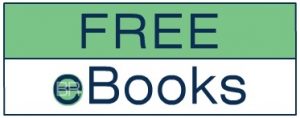For $199 (the PC Mag link suggests you might find one as low as $174.99) the Sony Reader Pocket Edition (PRS-300) could turn into this Christmas’ perfect gift for early eBook adopters.
It’s a smaller platform, with a 5″ instead of the more common 6″ screen, but tech-wise it plays pretty much on par with the industry leaders Kindle, the missing Nook and larger (and also missing) Sony eBook Touch Edition. Get full PRS-300 specs and mini-review here.
The PRS-300 lacks the wireless connectivity boasted by the bigger machines, but with a USB computer connect, multi-format eBook play and long battery life, this is an excellent startup machine for the curious, be they student, business person or senior. It seems that this will be the Christmas of missing eBook Readers, since most devices are order-only, but you might be able to find the smaller PRS-300 at a Sony Store, and with the low price, they’re well worth the wait if you do have to order.








